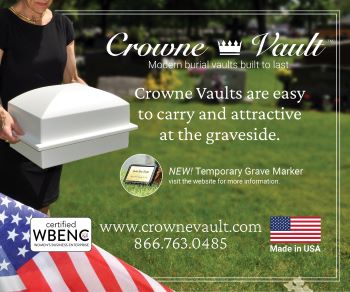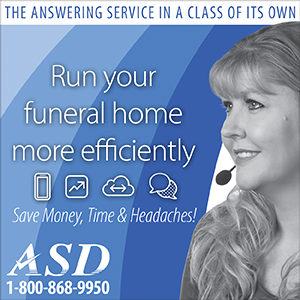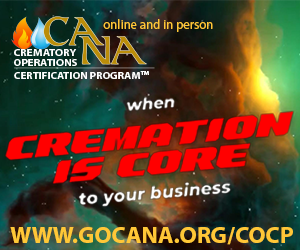Do we listen to the consumer
 Funeral home owners, cemetery operators, preneed professionals. We’re the experts in the death care profession. We know the business, we understand the clientele, and we know what is good for everybody. Or do we?
Funeral home owners, cemetery operators, preneed professionals. We’re the experts in the death care profession. We know the business, we understand the clientele, and we know what is good for everybody. Or do we?
I’m guessing that is somewhat how the buggy whip manufacturers, horse livery operators, and sales reps in that industry thought of themselves while Henry Ford and others were going about changing the way American moved by figuring out a way to build an automobile at a price that average Americans could afford.
Or, as those in the railroad passenger business were busy making more luxurious accommodations for multiple days long continental travel at the same time as the fledgling airline industry was being able to fly one coast to coast in a day. That “quick” travel eventually made the most luxurious week-long train ride obsolete.
I think death care operators are pretty savvy on the changes that can happen in a profession and/or industry. Over the past 40 years or so we have seen what an upstart disposition method, cremation, can do once it becomes normalized. There are lots of funeral directors who never thought the cremation process would become a normalized option for death care clients and got into the game late. They probably hung on to their business, but in many cases, that business suffered a loss of clientele to another business that catered to cremation clientele.. . . .because of that experience, I don’t think experienced operators will fail to look over their shoulders at new ideas anymore. . . .at least I hope they don’t.
The other day I read the syndicated column by Dr. Glen Mollette. That day’s column dealt with the death of a friend of Mr. Mollette who passed away with little in the way of material or financial resources. You can see that article here.
The cost of the health care and death care was more than the deceased had and more than his young adult son could muster to pay. He put out a “go fund me” like plea and received $20,300 from 103 people to cover the funeral costs, cemetery costs, and grave marker. Dr. Mollette found this admirable, but also found that it probably would not be practical for many to accomplish.
Dr. Mollette is an advocate of funerals and preneed. Here is what he said about that issue, “Do you have 103 friends who would give $20 to $2,000 each to pay for your burial expenses? I know I do not. Such an outpouring was a testimony to his life and the lives of so many he had touched. This story is a sad reminder that we must take prudent steps toward covering our burial/funeral costs.”
Dr. Mollette goes on in this article to talk about the death of his wife almost 20 years ago. He indicates that if not for insurance, he would have been in a heap of financial trouble. Here is what he says about that situation, “I would have been hurting and probably would have had to go the cheapest route available for her funeral. It was simply the grace of God and a wise insurance agent who saved us in that respect.”
So, even though Dr. Mollette is an advocate of death care services and an advocate for preneed planning, and while he doesn’t mention it, one of my takes from this article is the high cost, and rising cost of death care. It is my opinion that that is one of those “over your shoulder” sneaking up issues that may cause death care clientele to simply reach a point where they say “that cost is too much” and then choose a lower cost of disposition. We know that has happened in the past and continues to happen. However, without finding efficiencies in our death care services it will continue to happen and we could price ourselves out of some potential clientele.
It is worth watching your pricing, finding efficiencies in your cost structure, and knowing where you stand not only with your competitors, but in the mind of the consumer public.
Again, Dr. Mollette is in my opinion an advocate for funerals. Here is what he says about pre-arranging, including a little preamble about the cost of his in-laws funerals, “My mother- and father-in-law both died recently, and their funeral expenses alone were over $14,000 each. Fortunately, they had saved enough money to cover these costs. You can spend less, and you can spend more of course. The question is do you want your family to have to figure it out? Sit down with a trusted funeral director, and begin making preparations now.”
Another opinion is that of Dr. Mollette’s adult son who doesn’t seem to have his father’s values when it comes to funerals and memorialization. His ideas of death care seem to be different. Here’s how Dr. Mollette portays his son’s thoughts in the article, “My Navy son said, “Dad, just cremate me and scatter my remains over the north Atlantic.”
So, the goal is there for us. . . .we need to provide professionalism, provide comfort, provide dignity, provide service, and provide the right amenities. And, we have to continue to do it for a price that the consumer public feels is fair and just. . . . .and that price may differ from your opinion. However, failure to give that acceptable price to the consumer public will probably exacerbate the number of families that choose low-cost options.
So, don’t forget to keep looking over your shoulder at what the consumer is thinking and make sure that you can stay a step ahead of them.
More news from the world of Death Care:
- Owners see need for new funeral home in Orangeburg. The Times Democrat (SC)
- Ancient Egyptian manual reveals new details on how faces were embalmed. KCTV ABC 5 (MO)
- Sri Lanka reverses controversial COVID-19 cremation order. Jurist (PA)
Enter your e-mail below t0 join the 1,920 others who receive Funeral Director Daily articles daily:





















Absolutely excellent article! Thanks so much for sharing this.